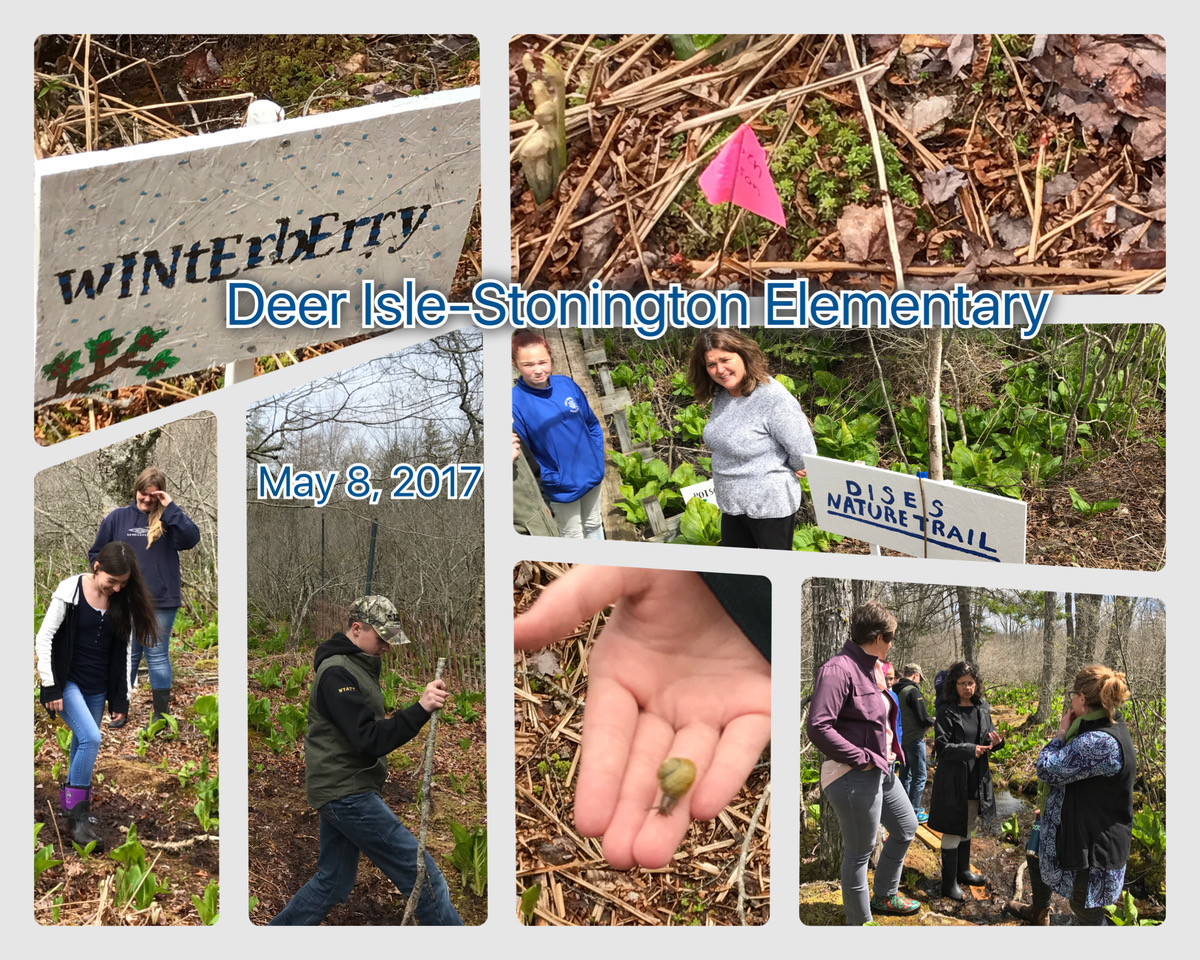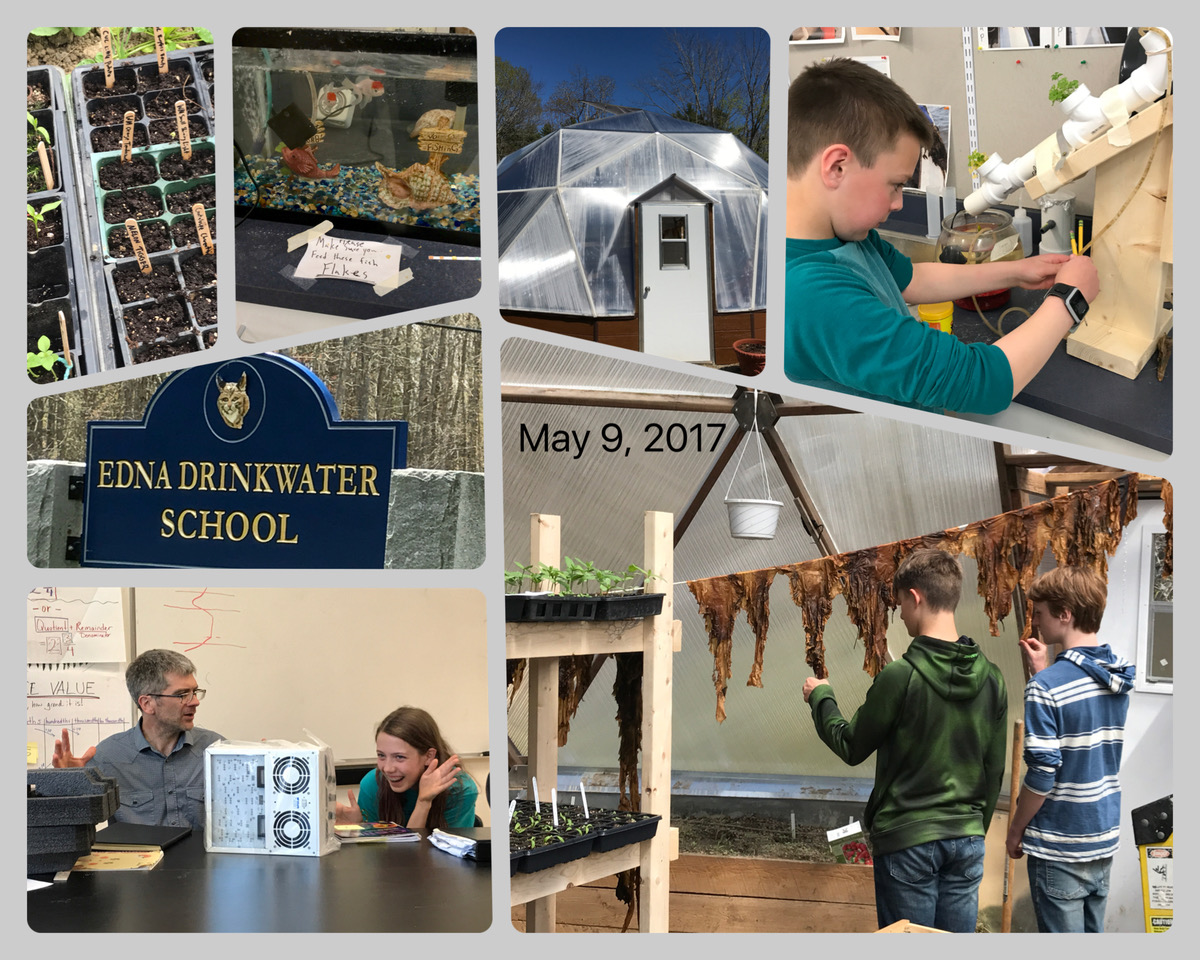On May 8 and 9, my wife Alix and I, accompanied by Gabrielle Grunkemeyer from NRCM, were hosted by Deer Isle-Stonington Elementary School and the Edna Drinkwater School in Northport. Sarah Oberink, the University of Maine NRCM intern, joined us at Edna Drinkwater.
Visiting these schools and learning about the work they are doing helped us to assess the impact of funding (grants) on environmental projects at each of the two schools. This is project-based learning. And, the projects could not have been more different.
Deer Isle-Stonington Elementary focused on restoring a past community resource: the nature trail, which wound around and through the school’s campus. Students have been working hard to clear paths, build bridges, identify local plants and trees in the area, and mark them with signs and research specific areas of the trail. Studies of moisture, temperature, and noises were documented. They are benchmarking their study with a similar effort in Biddeford.

Edna Drinkwater’s project is an aquaponics study—a system of aquaculture in which the waste produced by farmed fish or other aquatic animals supplies nutrients for plants grown hydroponically, which in turn purify the water. The classroom experiment created by the students is a maze of fishbowls, PVC piping, and transparent tubes. Students closely monitor the nitrate, nitrite, and pH levels of the tanks to keep the fish healthy. Classroom experiments became the basis for understanding the larger-scale aquaponics laboratory located in the greenhouse located right outside the school.

While these projects were significantly different, the results could not have been more similar. Students were thrilled to be conducting hands-on experiments. They couldn’t wait to tell us what they had built and what they had learned. One said, “I did learn more by being out of the classroom because I was able to firsthand see what I was researching. It wasn’t in a book that another person wrote. It was in front of me, ready to be researched and catalogued by me.”
Another said, “I learned because we were exploring and learning at the same time.”
The hard work and dedication shown by the teachers is also very encouraging. Mickey Flores at Deer Isle-Stonington, and Dana Mark from the Island Institute and Martha Bell from the Island Heritage Trust, who both helped in creating the trail project, as well as John Van Dis at Edna Drinkwater had their students build the projects, lead the tours, and answer the questions. The students’ enthusiasm for the projects and their admiration of their teachers was evident at every turn.
Finally, both projects were supported and augmented by their respective communities. Community involvement in these projects is important because it helps the values of both the school and NRCM reach beyond the classroom. Students and teachers expressed thanks to NCRM for enabling these projects.
Overall, this program is a win/win/win/win. It’s a win for the students, a win for the teachers, a win for the community, and a win for NRCM. As participating NRCM donors, we couldn’t have been more encouraged. These seed grants and NRCM management have unleashed a new level of learning, appreciation, and enthusiasm for what makes Maine so special to so many. The valuable lessons these students are learning today about the environment will stay with them when they vote tomorrow. The future truly is all about the kids.
—Guest post by Mark Morin












Leave a Reply